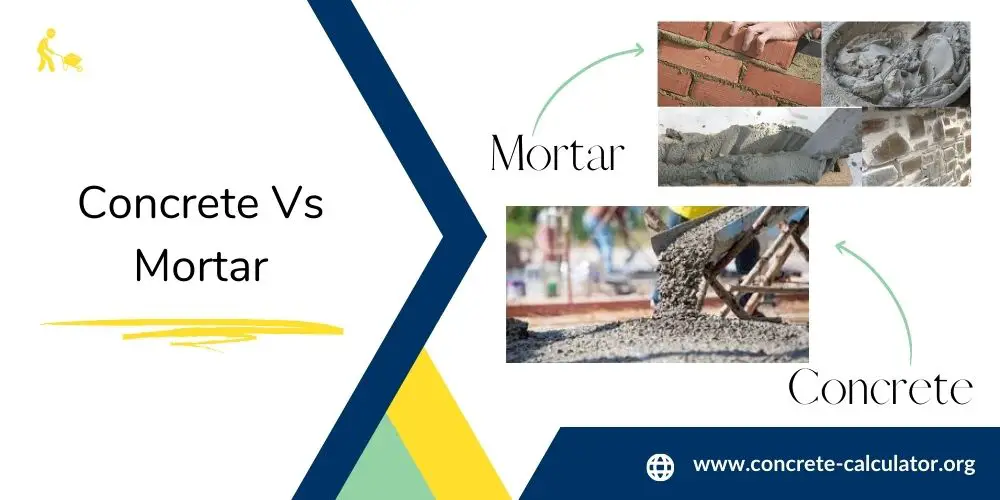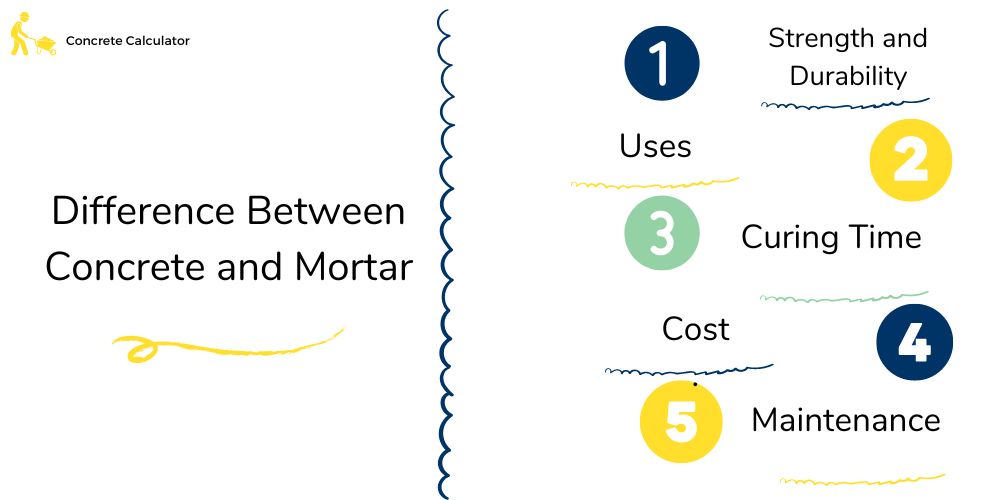Whether you are renovating your home or constructing a building from scratch, it’s essential to understand the key differences between concrete and mortar. While many people use the terms interchangeably, they are two distinct building materials with different properties and applications.
In this blog post, we’ll take a closer look at the differences between concrete and mortar, including their composition and uses.

Difference Between Concrete and Mortar
The primary difference between concrete and mortar is their composition. Concrete is composed of cement, water, sand, and gravel. The cement acts as a binding agent while the other components provide structural strength to the resulting material. Mortar, on the other hand, is composed of cement and just enough water to allow it to form a paste.
Below are the key differences between concrete and mortar:
1. Strength and Durability
Concrete is typically stronger and more durable than mortar, making it the ideal choice for load-bearing structures such as foundations, walls, and floors. Mortar, while still strong, is better suited for non-load-bearing construction such as bricklaying, plastering, and pointing.
You Can Also Use: Concrete Calculator
2. Uses
As mentioned above, concrete is ideal for structures that require load-bearing capacity, while the mortar is better suited for finishing work such as bricklaying, plastering, and pointing. However, both materials have a wide range of uses, including sidewalks, retaining walls, and decorative features such as fountains and statues.
3. Curing Time
Concrete and mortar also differ in their curing time. Concrete typically takes longer to cure, often taking weeks to complete, while mortar cures much quicker, typically taking a few days. The curing time for both materials depends on various factors such as ambient temperature, humidity, and the thickness of the application.

4. Cost
The cost of concrete and mortar varies depending on the specific application and the availability of raw materials. Generally, concrete is more expensive than mortar due to its higher strength and durability. It can also require more labor and equipment, further increasing the cost.
5. Maintenance
In terms of maintenance, concrete is generally easier to maintain than mortar since it’s more durable. Mortar tends to deteriorate over time and requires regular maintenance in order to keep its strength and appearance. Nevertheless, both materials require regular cleaning and repairs in order to ensure their longevity.
Overall, concrete and mortar are two distinct building materials that have different uses and applications. While concrete is the more popular choice due to its strength and durability, mortar can still be used for a variety of projects.
Also Read: Concrete Vs Asphalt Roads
FAQ’s
Should I use mortar or concrete?
It depends on the specific application. Concrete is often used for larger projects such as foundations, while mortar is better suited for finishing work like bricklaying. However, both materials can be used depending on the desired outcome and budget.
Is mortar as strong as concrete?
No, mortar is generally weaker than concrete due to its lower compressive strength. However, it can still be used for a variety of projects where strength isn’t a major factor.
Which is heavier mortar or concrete?
Concrete is usually much heavier than mortar due to its higher density. This can make it difficult to transport and handle if the project requires a large amount of material.
Related Article: Can You Pour Concrete Over Concrete
I am John Doe, a licensed civil engineer and concrete expert. I received my degree in Civil Engineering from Washington State University and have been working in the field for 15 years. Based in Seattle, WA, I specialize in concrete projects and calculations. I have a passion for sharing my knowledge and experience through my website concrete-calculator.org
